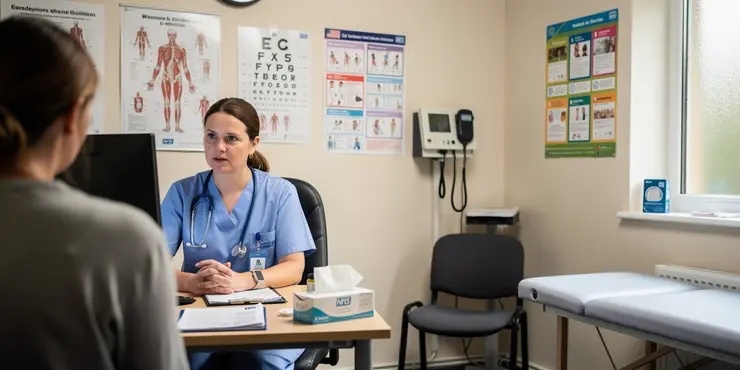
Find Help
More Items From Ergsy search
-
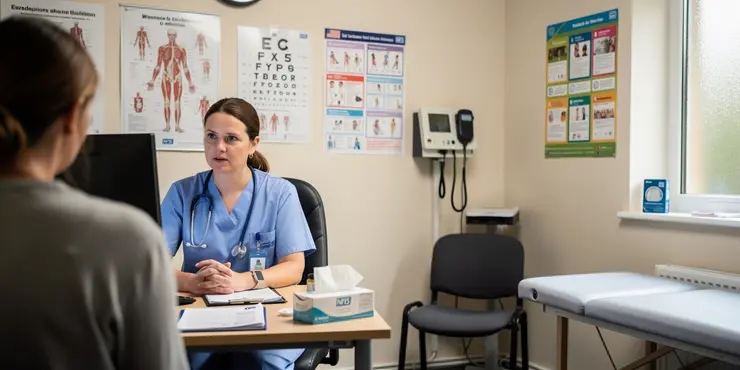
What are the complications of chickenpox?
Relevance: 100%
-
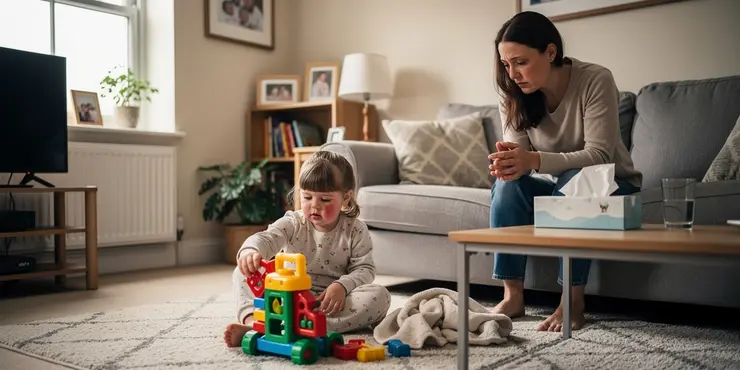
What is Chickenpox?
Relevance: 71%
-
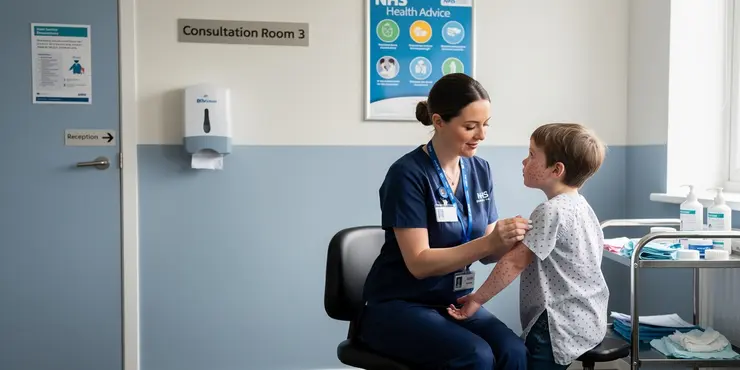
What is the treatment for chickenpox?
Relevance: 67%
-
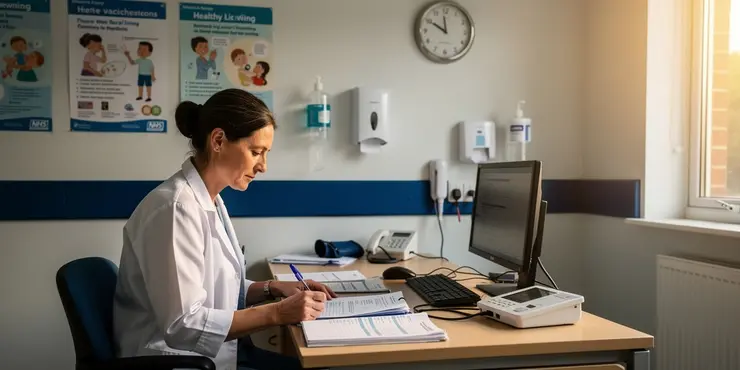
Can adults get chickenpox?
Relevance: 66%
-
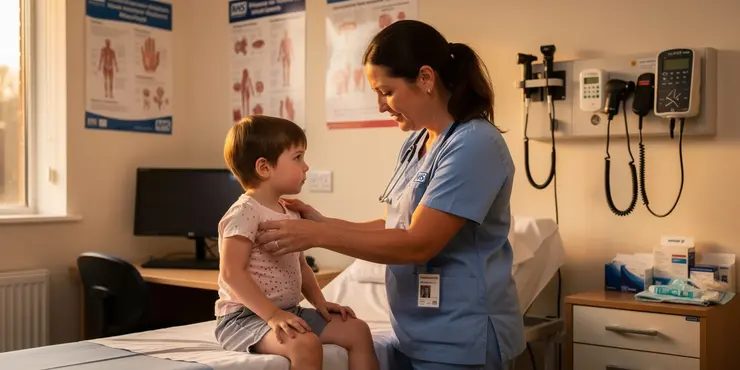
What are the symptoms of chickenpox?
Relevance: 66%
-
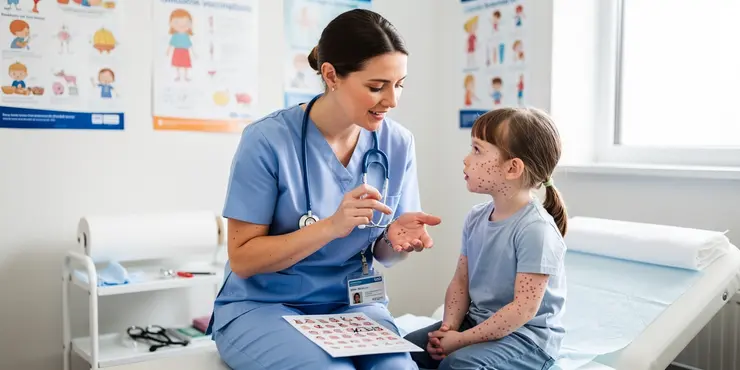
Is chickenpox contagious?
Relevance: 65%
-
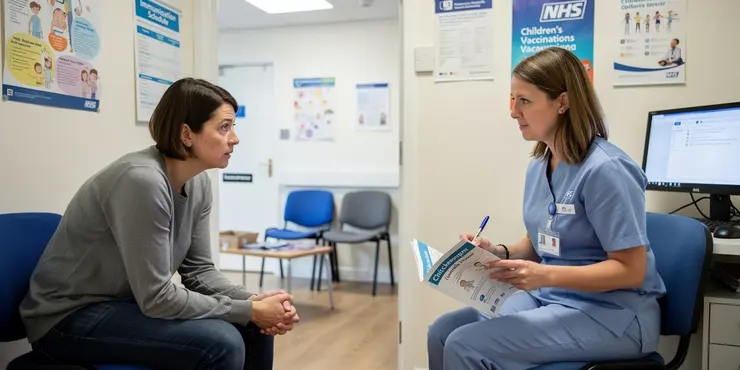
Can chickenpox be prevented?
Relevance: 63%
-
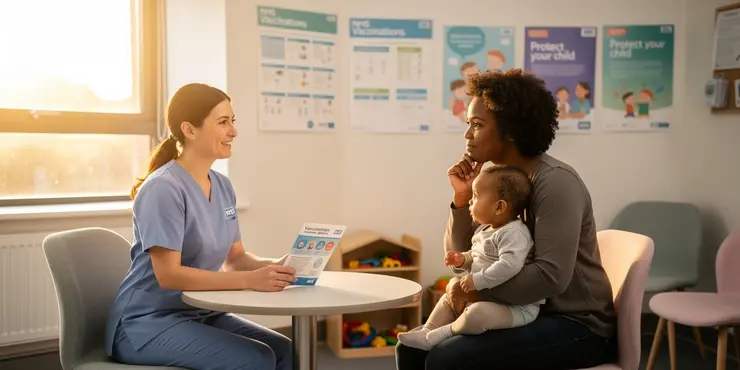
Should I get the chickenpox vaccine?
Relevance: 62%
-
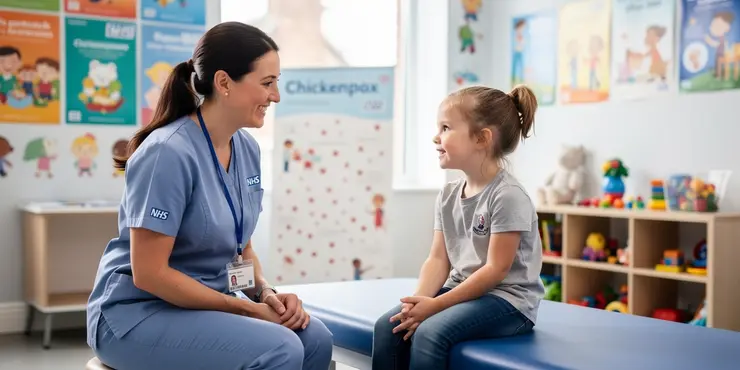
Common health questions about chickenpox | NHS
Relevance: 61%
-
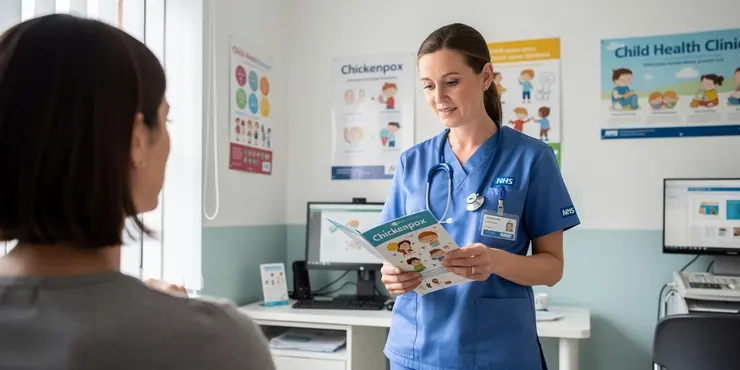
How is chickenpox spread?
Relevance: 61%
-

How long does chickenpox affect a child?
Relevance: 60%
-
Can pregnant women get chickenpox?
Relevance: 60%
-
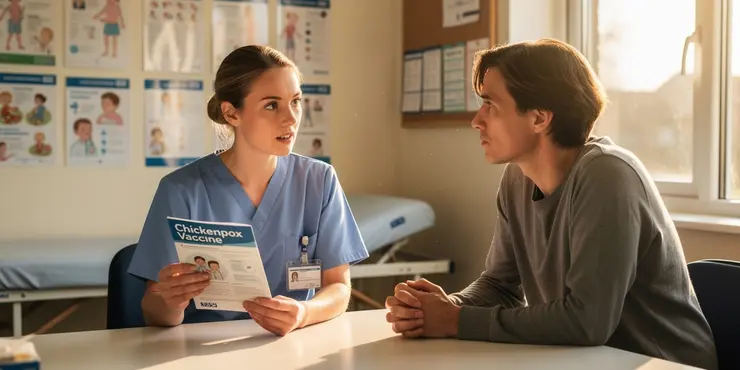
Who should get the chickenpox vaccine?
Relevance: 60%
-
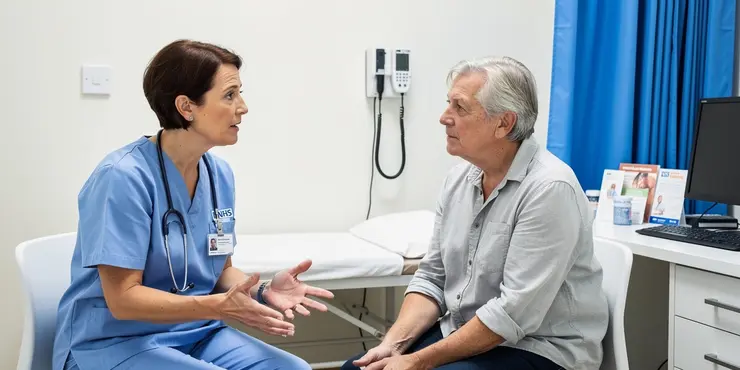
Can the shingles vaccine cause chickenpox?
Relevance: 59%
-

Are there home remedies for chickenpox?
Relevance: 59%
-
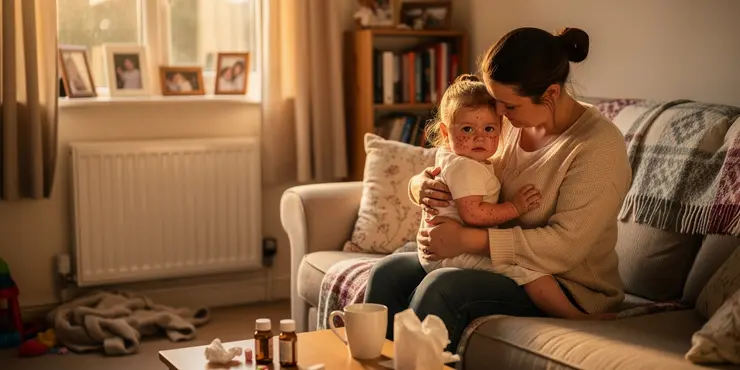
How to Keep a Child With Chickenpox Comfortable
Relevance: 56%
-
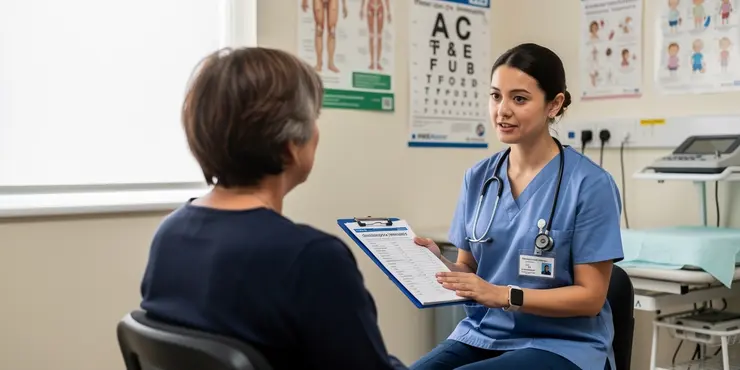
Can you get chickenpox more than once?
Relevance: 55%
-

Can the shingles vaccine cause chickenpox?
Relevance: 55%
-
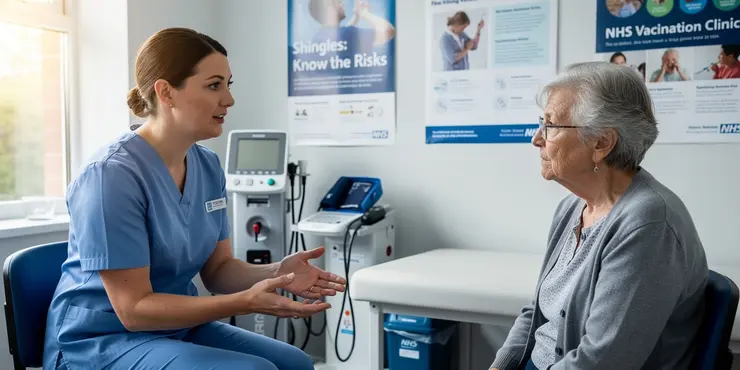
Are there any complications associated with shingles?
Relevance: 54%
-
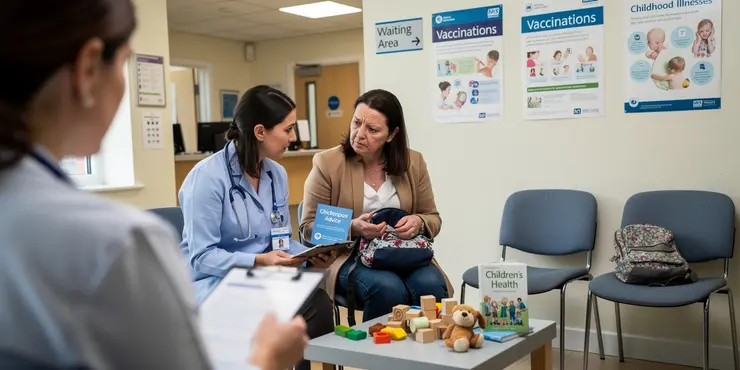
Is it safe to use aspirin to treat chickenpox symptoms?
Relevance: 54%
-
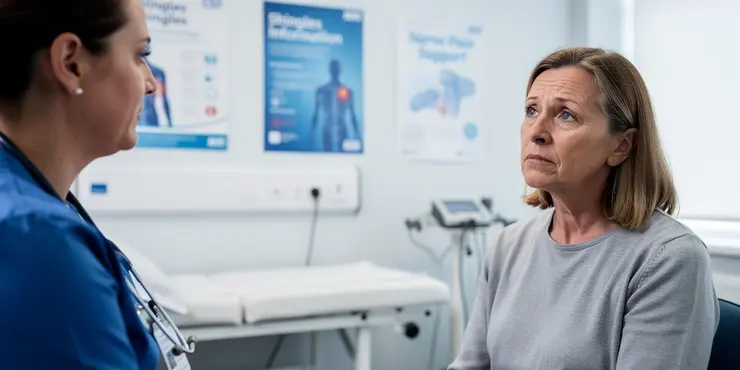
Are there any complications associated with shingles?
Relevance: 50%
-
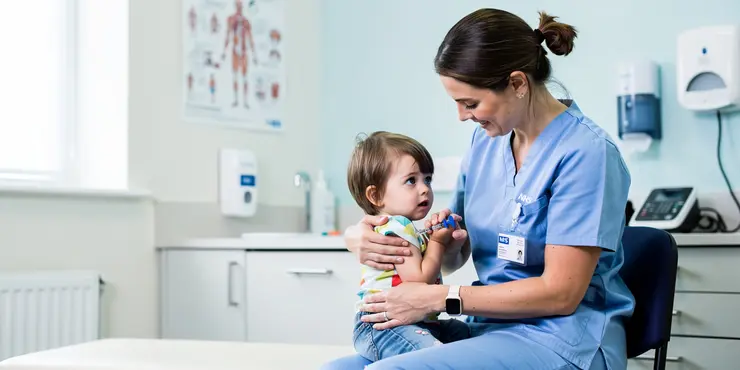
Can measles cause complications?
Relevance: 39%
-

How long is the incubation period for chickenpox?
Relevance: 38%
-
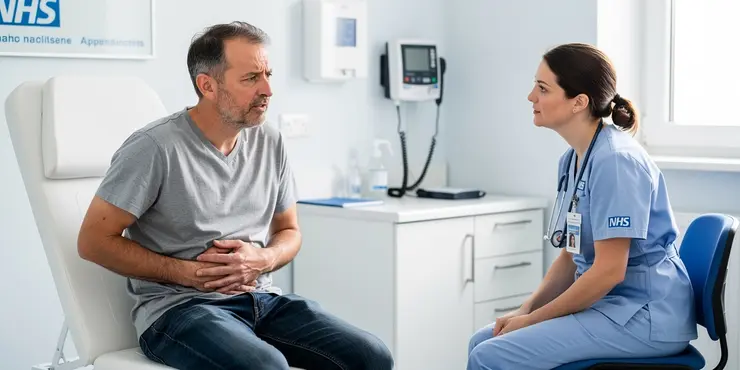
What are the potential complications of appendicitis?
Relevance: 38%
-
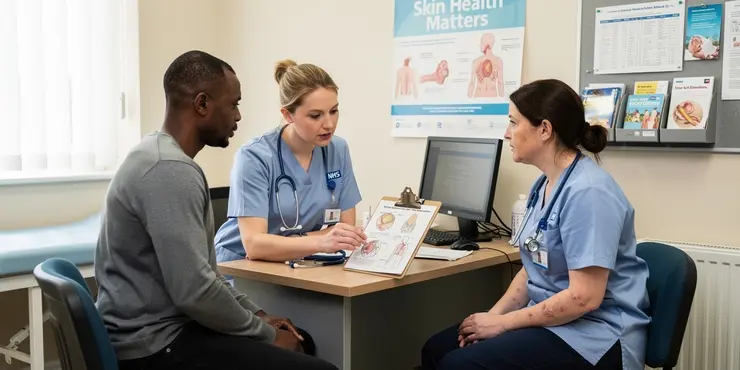
Can scabies cause complications?
Relevance: 38%
-
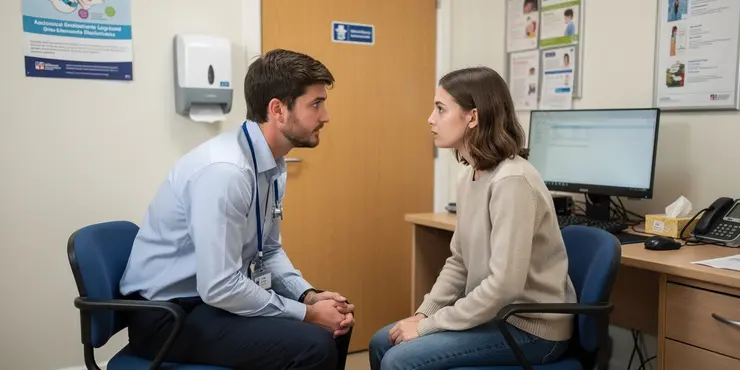
Can meningitis cause long-term complications?
Relevance: 36%
-
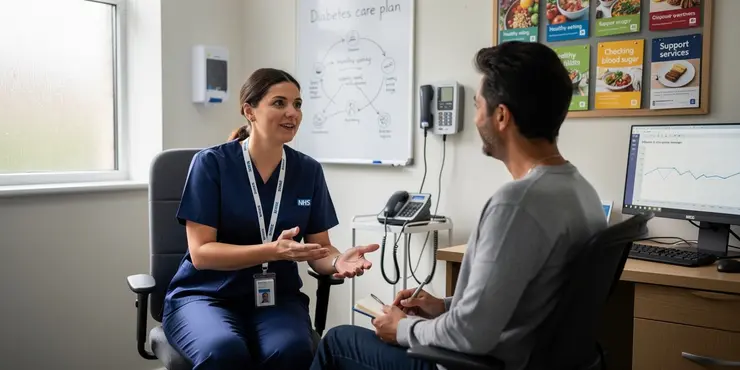
What complications are associated with Type 2 Diabetes?
Relevance: 35%
-
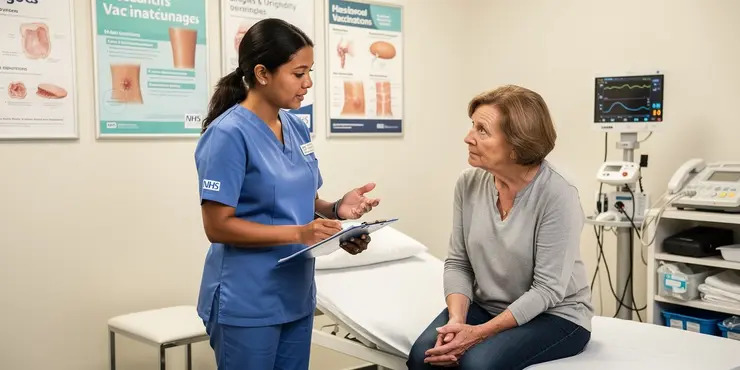
Is shingles contagious?
Relevance: 35%
-
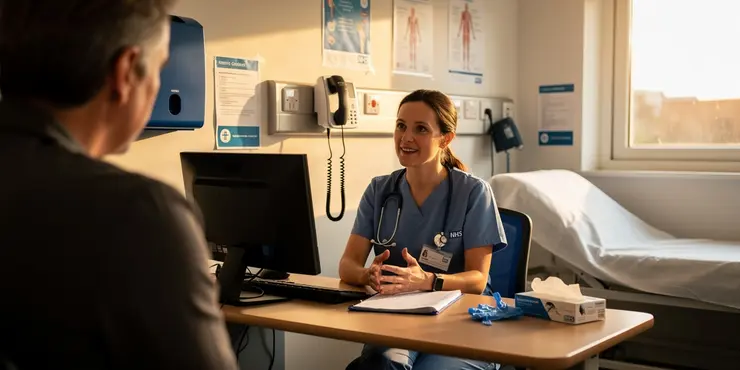
Are there any complications associated with Crohn's disease?
Relevance: 35%
-
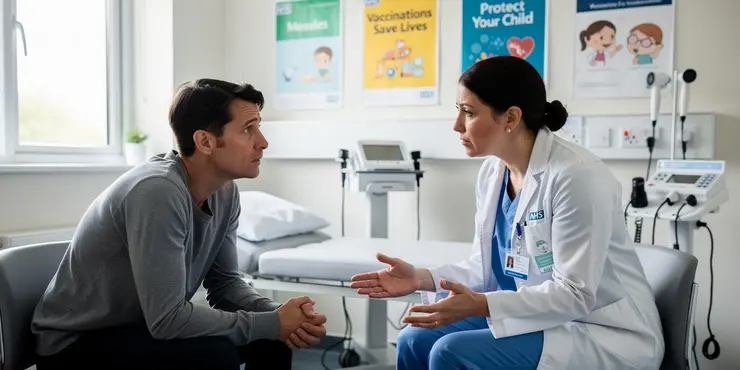
What complications can arise from measles?
Relevance: 35%
-
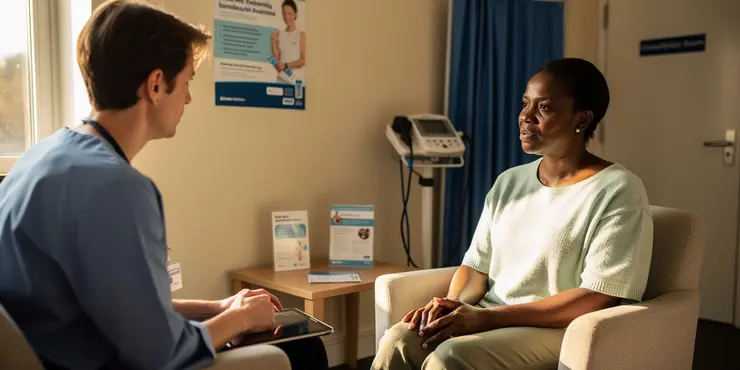
What are the complications of sickle cell disease?
Relevance: 35%
-
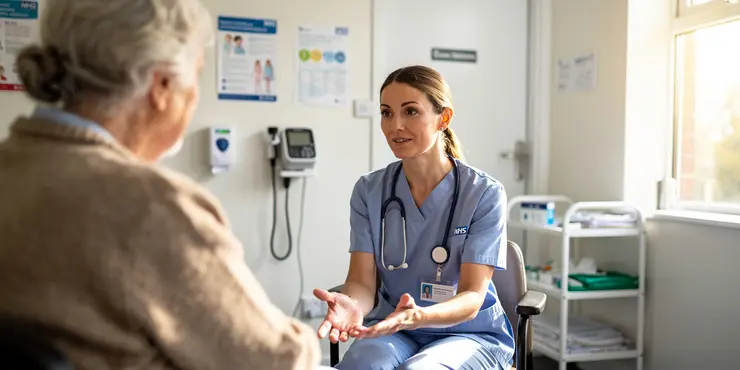
Who is most at risk for complications from H3N2?
Relevance: 35%
-
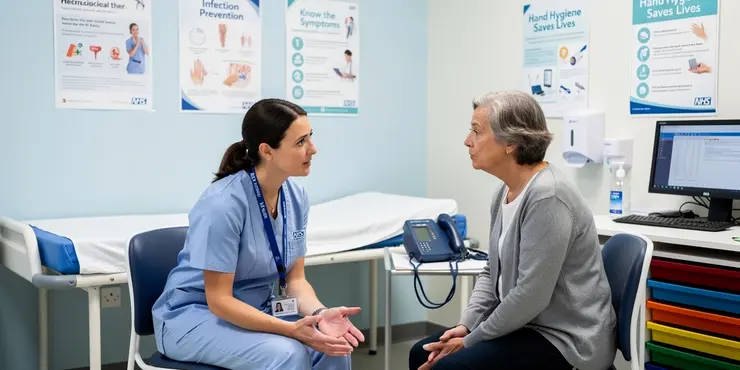
Can Nipah Virus cause neurological complications?
Relevance: 35%
-
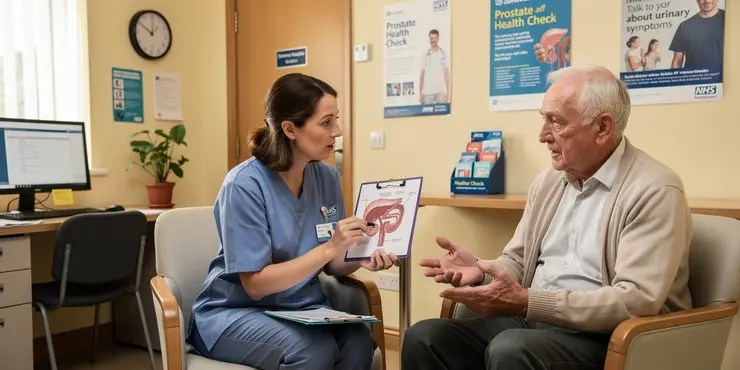
Are there any complications associated with untreated BPH?
Relevance: 35%
-
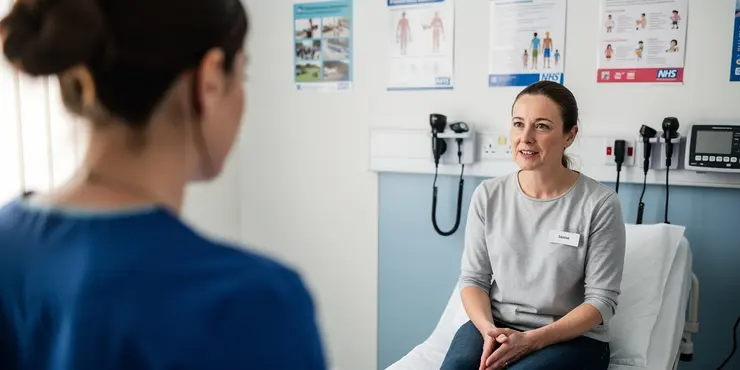
What are potential complications of nettle rash?
Relevance: 34%
-
Can flesh-eating disease cause long-term complications?
Relevance: 34%
-
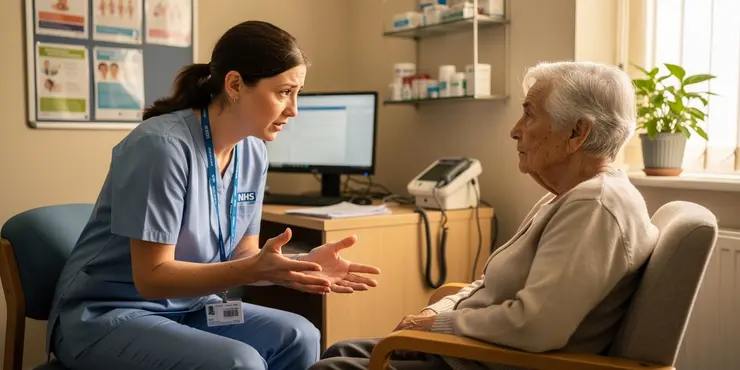
What is Shingles?
Relevance: 33%
-
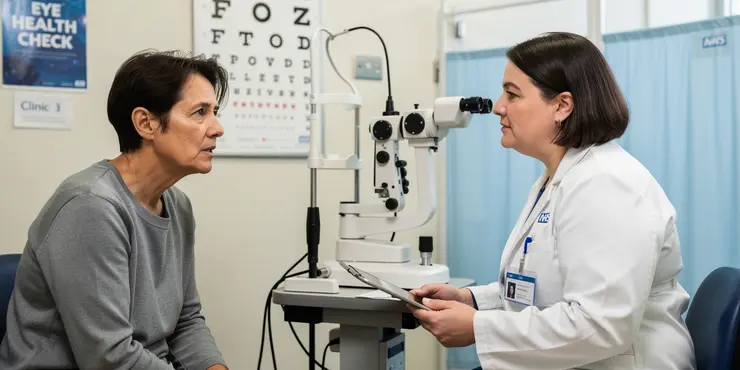
What complications can arise from untreated hypotony?
Relevance: 32%
-
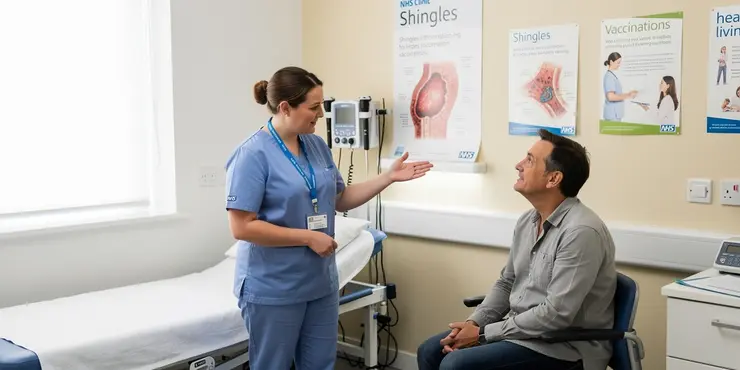
Is shingles contagious?
Relevance: 31%
-
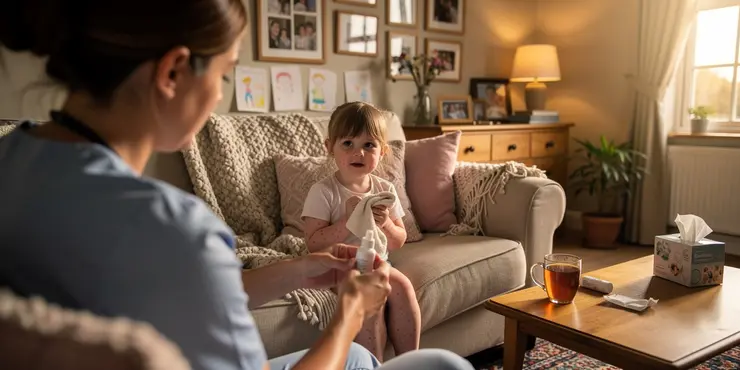
How to care for someone with chicken pox
Relevance: 30%
What is Chickenpox?
Chickenpox, known as varicella, is an infectious disease caused by the varicella-zoster virus. It is characterized by an itchy rash, fever, and fatigue. While it is most common among children, adults can also contract the disease. Though generally mild, chickenpox can sometimes lead to complications, particularly in certain groups of individuals.
Who is at Risk?
While anyone who has not been vaccinated or previously had chickenpox can contract the virus, certain groups are at higher risk for serious complications. These include newborns, pregnant women, adults, and individuals with weakened immune systems such as those undergoing chemotherapy, or those with HIV/AIDS.
Common Complications
Though they occur infrequently, complications can arise from chickenpox. Secondary bacterial infections happen when bacteria infect the skin where chickenpox lesions are present. This can result in cellulitis, impetigo, or even more severe infections such as necrotizing fasciitis.
Pneumonia
Pneumonia is a serious and potentially life-threatening lung infection that can occur as a complication of chickenpox, especially in adults, smokers, and those with weakened immune systems. Symptoms may include cough, fever, difficulty breathing, and chest pain. It requires prompt medical treatment to prevent severe consequences.
Neurological Complications
Chickenpox can sometimes affect the nervous system. While rare, it can lead to encephalitis, which is an inflammation of the brain that can cause headaches, confusion, seizures, and even long-term neurological damage. Another possible but rare complication is cerebellar ataxia, which leads to a loss of coordination and muscle control.
Reye's Syndrome
Reye’s syndrome is a rare but serious condition that can affect children and teenagers recovering from chickenpox. It is associated with using aspirin during viral infections and can affect the liver and brain, leading to vomiting, confusion, and coma. Avoiding aspirin during chickenpox is essential to prevent this risk.
Complications During Pregnancy
Pregnant women who contract chickenpox face potential risks for themselves and their unborn babies. If a woman contracts chickenpox early in pregnancy, there is a slight risk of congenital varicella syndrome, leading to birth defects. Later in pregnancy, chickenpox can cause severe disease in the newborn, and immediate medical attention is required.
Prevention and Management
The best way to prevent chickenpox and its complications is through vaccination. The varicella vaccine is highly effective and significantly reduces the likelihood of severe disease and complications. For those who contract chickenpox, medications such as antivirals may be prescribed, and supportive care for the symptoms is essential. Early medical intervention can mitigate the severity of complications if they arise.
What is Chickenpox?
Chickenpox is a disease that makes you itchy and tired. It also gives you a fever. It's caused by a virus called varicella. Most children get chickenpox, but adults can get it too. Chickenpox is usually not serious, but sometimes it can cause other health problems.
Who is at Risk?
Anyone who hasn't had a chickenpox vaccine or the disease can get chickenpox. Some people can get sicker from it. These people are newborn babies, pregnant women, adults, and people with weak immune systems like those with cancer or HIV/AIDS.
Common Complications
Sometimes chickenpox can cause other problems. If germs get into the chickenpox spots, they can cause skin infections. This can cause the skin to become red, sore, and swollen.
Pneumonia
Pneumonia is a bad lung infection that can happen with chickenpox. It's more common in adults, smokers, and people with weak immune systems. It can make you cough, feel out of breath, have a fever, and have chest pain. You need to see a doctor quickly if you think you have pneumonia.
Neurological Complications
Chickenpox can sometimes affect the brain and nerves. This is very rare. It can cause problems like headaches, seizures, or trouble moving your body. If you have these problems, it's important to see a doctor.
Reye's Syndrome
Reye’s syndrome can happen to children and teens with chickenpox if they take aspirin. It's very serious and can make you very sick. It can cause vomiting and confusion, and you might go into a coma. To stay safe, do not take aspirin if you have chickenpox.
Complications During Pregnancy
If pregnant women get chickenpox, it can be dangerous for them and their babies. If it happens early in the pregnancy, the baby might have birth defects. If it happens later, the baby could get very sick. It's important to see a doctor right away.
Prevention and Management
The best way to stop chickenpox is to get the vaccine. The vaccine works really well to keep you from getting really sick. If you do get chickenpox, medicines can help. It's important to rest and take care of yourself. See a doctor if you have any problems.
Frequently Asked Questions
What are the common complications of chickenpox?
Common complications include bacterial skin infections, pneumonia, encephalitis, and dehydration.
Can chickenpox lead to skin infections?
Yes, scratching the chickenpox blisters can lead to bacterial skin infections.
Is pneumonia a complication of chickenpox?
Yes, pneumonia is a known complication that can occur in people with chickenpox, especially adults.
What is encephalitis, and how is it related to chickenpox?
Encephalitis is an inflammation of the brain that can occur as a severe complication of chickenpox.
How can dehydration occur as a complication of chickenpox?
Dehydration can occur if fluid intake is insufficient, especially in children who have a high fever and are not drinking enough fluids.
Can pregnant women experience complications from chickenpox?
Yes, chickenpox during pregnancy can lead to serious complications for both the mother and the unborn child, including congenital varicella syndrome.
What is congenital varicella syndrome?
Congenital varicella syndrome is a condition that can occur in infants when a mother contracts chickenpox during pregnancy, leading to birth defects.
Can chickenpox cause complications in newborns?
Yes, newborns can develop severe chickenpox if the mother contracts it around the time of delivery.
Are there any long-term complications associated with chickenpox?
Yes, one of the long-term complications is shingles (herpes zoster), which can occur years after the chickenpox infection.
Is it common for adults to have complications from chickenpox?
Adults are more likely than children to experience severe complications from chickenpox.
Can chickenpox lead to serious eye problems?
Yes, if chickenpox affects the eyes, it can lead to serious ocular complications.
What role does vaccination play in preventing chickenpox complications?
The chickenpox vaccine is highly effective in preventing chickenpox infection and its complications.
How do bacterial infections occur as a complication in chickenpox?
Bacterial infections can occur if bacteria enter the blisters or skin lesions, especially when they are scratched.
Are there neurological complications related to chickenpox?
Yes, besides encephalitis, other possible neurological complications include cerebellar ataxia and transverse myelitis.
Can immunocompromised individuals experience worse chickenpox complications?
Yes, individuals with weakened immune systems are at a higher risk for severe complications from chickenpox.
What is Reye's syndrome and its connection to chickenpox?
Reye's syndrome is a rare but serious condition that can occur in children with chickenpox or the flu who take aspirin.
Can secondary infections from chickenpox be severe?
Secondary bacterial infections, if untreated, can be severe and lead to sepsis or other systemic issues.
How can chickenpox complications affect the respiratory system?
Complications such as pneumonia can significantly affect the respiratory system, making breathing difficult.
Why are pregnant women advised to avoid chickenpox exposure?
Chickenpox can cause severe complications during pregnancy, including risks to the fetus and potential for premature delivery.
What preventive measures can reduce the risk of chickenpox complications?
Vaccination, maintaining good hygiene, and avoiding scratching the blisters can help reduce the risk of complications.
What problems can chickenpox cause?
Chickenpox can sometimes cause problems.
Here are some problems it might cause:
- Skin infections: The spots can get infected.
- Lung problems: Chickenpox can make it hard to breathe.
- Brain problems: Sometimes it can make your head hurt a lot.
- Dehydration: You might not drink enough water.
It's important to rest and drink lots of water.
If you feel very sick, tell a grown-up or see a doctor.
Things that can go wrong include:
- Getting germs and cuts on your skin
- Getting very sick with a bad cough and chest pain
- Getting a headache and feeling very tired because your brain is not feeling well
- Feeling very thirsty and weak because your body doesn't have enough water
If you or someone else has these problems, you should tell a doctor or nurse. They can help you feel better.
Can chickenpox cause skin problems?
If you scratch chickenpox spots, it can cause skin infections.
Can chickenpox cause pneumonia?
Chickenpox is a sickness with itchy spots. Sometimes, it can cause other problems.
Pneumonia is a lung infection that makes it hard to breathe.
If you have chickenpox, you might also get pneumonia. It's important to see a doctor if you feel very sick.
Here are some things that can help:
- Talk to a doctor or nurse about how you feel.
- Stay in bed and rest a lot.
- Drink lots of water or juice.
- Tell an adult if you are having trouble breathing.
Yes, sometimes people who have chickenpox can get another illness called pneumonia. This can happen more often in grown-ups.
What is encephalitis, and how is it related to chickenpox?
What is encephalitis?
Encephalitis is when the brain gets swollen or puffy. It can make you feel very sick.
How does it relate to chickenpox?
Chickenpox is a common illness with spots. Sometimes, chickenpox can cause encephalitis. If you have chickenpox and feel very sick or confused, tell an adult.
Helpful tools:
- Use simple words and take your time reading.
- Ask someone you trust to explain things you don’t understand.
- Look for videos or pictures that can help explain.
Encephalitis means the brain gets swollen and it can happen as a serious problem after having chickenpox.
Why can you get dehydrated when you have chickenpox?
Sometimes, our bodies do not have enough water. This is called being very thirsty or dehydrated.
Kids can be in trouble if they are really hot with fever and do not drink enough water.
It can help to drink water, juice, or a special drink with salts. You can also set reminders to drink water often, especially when feeling hot.
Can pregnant women have problems from chickenpox?
When a woman is going to have a baby and gets chickenpox, she can sometimes have health problems.
If you want help to understand this, you can ask a doctor or nurse. They know a lot and can explain more.
If you get chickenpox while you are pregnant, it can cause big problems. It can make the mom and the baby sick. The baby might even get something called congenital varicella syndrome.
What is congenital varicella syndrome?
Easy Explanation: Congenital varicella syndrome happens when a baby is born with health problems because the mom had chickenpox while pregnant.
What Causes It: If a mom gets chickenpox during the first half of her pregnancy, it can sometimes cause the baby to have problems.
What Can Happen: The baby might have scars, small head size, eye problems, or problems with legs and arms.
Helpful Tools: It's important to see a doctor and follow their advice. A doctor can help check for problems and tell you what to do.
What to Remember: If you're pregnant and never had chickenpox or the vaccine, talk to your doctor to be safe.
Congenital varicella syndrome is a health problem. It can happen to a baby before they are born. This happens if the mother gets chickenpox when she is pregnant. The baby might be born with health issues.
Can Chickenpox Make Newborns Sick?
Chickenpox can be dangerous for newborn babies. It's important to keep them safe. If newborns get chickenpox, they might get very sick.
Here are some ways to help:
- Ask your doctor for advice.
- Keep your newborn away from people with chickenpox.
- Keep your baby clean and comfortable.
Yes, newborn babies can get really sick with chickenpox if their mother catches it when she is having the baby.
Can chickenpox cause problems later on?
Chickenpox can sometimes cause problems even after you feel better. These problems are rare, but they can happen.
It's important to take care of yourself and see a doctor if you're worried. Using simple charts or watching videos can help you understand more about chickenpox and its effects.
Yes, sometimes people can get sick with something called shingles a long time after they had chickenpox. Shingles can happen many years later.
Do grown-ups often have problems from chickenpox?
Chickenpox is a sickness with spots. Many kids get it.
Sometimes, grown-ups can get chickenpox too. Grown-ups might have more problems from chickenpox than kids.
If you are a grown-up and get chickenpox, it is important to see a doctor. A doctor can help you feel better.
Tools and tips to help:
- Ask someone to read with you.
- Use apps that read texts out loud.
- Look at pictures of chickenpox to understand.
Grown-ups can get sicker from chickenpox than kids can.
Can chickenpox cause big problems for your eyes?
Chickenpox is a sickness that gives you itchy spots. It can sometimes make your eyes hurt.
If you get chickenpox, and your eyes hurt or feel funny, tell an adult right away. They can help you see a doctor.
Using tools like a magnifying glass can help if you have trouble reading small words or text.
Yes, if chickenpox affects your eyes, it can cause serious problems.
How does getting a vaccine help stop problems from chickenpox?
Getting a vaccine is like a shield that protects you from getting sick. When you get the chickenpox vaccine, it helps your body fight the chickenpox germs. This means you don’t get as sick, and it can stop serious problems.
To make reading helpful, you can:
- Use pictures to understand better.
- Ask someone to read with you.
- Use audio tools to listen to the text.
The chickenpox shot works really well to stop you from getting chickenpox. It also helps you avoid getting sick from chickenpox.
How Do Germs Cause Problems When You Have Chickenpox?
Sometimes, when you have chickenpox, germs can make things worse. This happens when germs get into your skin.
Here's how it can happen:
- Chickenpox spots can itch. If you scratch them, your skin can break.
- Germs can go into your skin through the broken spots.
- This can cause more problems, like redness, swelling, or pain.
To help you with this, remember:
- Try not to scratch the chickenpox spots.
- Keep your hands clean.
- You can use a cream to help stop the itching.
If the skin around a chickenpox spot looks bad or hurts, ask a grown-up for help. They can talk to the doctor.
Bacteria are tiny germs. They can get into your skin if you have blisters or sores. This is more likely to happen if you scratch these areas.
Can chickenpox cause problems with the brain?
Yes, there are other brain and nerve problems. These can include trouble with balance, called cerebellar ataxia, and problems with the spine, called transverse myelitis.
Can people with weak immune systems have more problems with chickenpox?
Some people have bodies that don’t fight germs very well. These people are called “immunocompromised.” When they get sick, they can have more trouble getting better.
If someone with a weak immune system gets chickenpox, they might get sicker than other people.
Here are some ways to help:
- Talk to a doctor. They can help keep you safe.
- Ask family or friends for help if you feel unwell.
- Get enough rest and eat healthy food.
Yes, people whose bodies can't fight germs well can get very sick from chickenpox.
What is Reye's syndrome and how does it link to chickenpox?
Reye’s syndrome is a serious illness that affects the brain and liver. It can happen to children recovering from a virus, like chickenpox or the flu.
If a child has chickenpox, be careful with using aspirin. Aspirin can make Reye's syndrome more likely.
Watch for signs like confusion, tiredness, or being sick. If you see these, get help from a doctor quickly.
Tools like picture books or storyboards can help children understand better. Always ask questions if you are unsure.
Reye's syndrome is a very rare but serious illness. It can happen to children who have chickenpox or the flu and take aspirin.
Can other infections from chickenpox be very bad?
Chickenpox can sometimes cause other infections. These can be serious. It is important to see a doctor if someone with chickenpox gets worse or has new symptoms.
Talking to a nurse or doctor can help. Using pictures or videos about chickenpox can make it easier to understand.
Bacterial infections can make you very sick. If you do not get treatment, they can cause big problems in your whole body.
It's important to see a doctor if you think you have an infection. Take medicine if the doctor gives it to you.
Using picture books or audiobooks can help you understand more about infections.
How can chickenpox make breathing problems?
Chickenpox can be more than itchy spots. Sometimes, it can cause breathing problems. This happens if chickenpox affects the lungs.
Some people might get a cough or have trouble breathing. In serious cases, it can cause lung infections like pneumonia.
If you feel sick, tell a grown-up or a doctor. Breathing is important, and they can help you feel better.
Using pictures or videos can help understand better. Also, reading with someone else might be a good idea.
Sometimes people can get very sick with something called pneumonia. This can make it hard for them to breathe easily.
Why should pregnant women stay away from chickenpox?
If a pregnant woman catches chickenpox, it can be harmful. The illness might make her very sick, and it can also affect the baby.
Pregnant women should try to stay away from anyone with chickenpox. This helps keep them and their baby safe.
If a pregnant woman thinks she has been near someone with chickenpox, she should talk to a doctor. The doctor can help and give advice on what to do next.
Tools or tips that might help:
- Use simple words and pictures to understand more about chickenpox.
- Ask a doctor or nurse if you have questions.
- Keep a safe distance from people who have spots or feel sick.
Chickenpox can make problems when a woman is pregnant. It can hurt the baby or make the baby come too early.
How can you stop chickenpox from getting worse?
Here are some ways to help:
- Get the chickenpox vaccine. This can stop you from getting sick or make the illness milder.
- Wash your hands often. Clean hands help stop the spread of germs.
- Try not to scratch the spots. Scratching can make your skin sore and cause infection.
- Stay away from people who have chickenpox if you haven’t had it or the vaccine.
- If you feel very sick, see a doctor.
These ideas can keep you safe and healthy. Ask someone you trust to help you understand or use these tips.
Getting vaccines, keeping clean, and not scratching blisters can help keep you safe and healthy.
Useful Links
This website offers general information and is not a substitute for professional advice.
Always seek guidance from qualified professionals.
If you have any medical concerns or need urgent help, contact a healthcare professional or emergency services immediately.
Some of this content was generated with AI assistance. We’ve done our best to keep it accurate, helpful, and human-friendly.
- Ergsy carfully checks the information in the videos we provide here.
- Videos shown by Youtube after a video has completed, have NOT been reviewed by ERGSY.
- To view, click the arrow in centre of video.
- Most of the videos you find here will have subtitles and/or closed captions available.
- You may need to turn these on, and choose your preferred language.
- Go to the video you'd like to watch.
- If closed captions (CC) are available, settings will be visible on the bottom right of the video player.
- To turn on Captions, click settings .
- To turn off Captions, click settings again.
More Items From Ergsy search
-

What are the complications of chickenpox?
Relevance: 100%
-

What is Chickenpox?
Relevance: 71%
-

What is the treatment for chickenpox?
Relevance: 67%
-

Can adults get chickenpox?
Relevance: 66%
-

What are the symptoms of chickenpox?
Relevance: 66%
-

Is chickenpox contagious?
Relevance: 65%
-

Can chickenpox be prevented?
Relevance: 63%
-

Should I get the chickenpox vaccine?
Relevance: 62%
-

Common health questions about chickenpox | NHS
Relevance: 61%
-

How is chickenpox spread?
Relevance: 61%
-

How long does chickenpox affect a child?
Relevance: 60%
-
Can pregnant women get chickenpox?
Relevance: 60%
-

Who should get the chickenpox vaccine?
Relevance: 60%
-

Can the shingles vaccine cause chickenpox?
Relevance: 59%
-

Are there home remedies for chickenpox?
Relevance: 59%
-

How to Keep a Child With Chickenpox Comfortable
Relevance: 56%
-

Can you get chickenpox more than once?
Relevance: 55%
-

Can the shingles vaccine cause chickenpox?
Relevance: 55%
-

Are there any complications associated with shingles?
Relevance: 54%
-

Is it safe to use aspirin to treat chickenpox symptoms?
Relevance: 54%
-

Are there any complications associated with shingles?
Relevance: 50%
-

Can measles cause complications?
Relevance: 39%
-

How long is the incubation period for chickenpox?
Relevance: 38%
-

What are the potential complications of appendicitis?
Relevance: 38%
-

Can scabies cause complications?
Relevance: 38%
-

Can meningitis cause long-term complications?
Relevance: 36%
-

What complications are associated with Type 2 Diabetes?
Relevance: 35%
-

Is shingles contagious?
Relevance: 35%
-

Are there any complications associated with Crohn's disease?
Relevance: 35%
-

What complications can arise from measles?
Relevance: 35%
-

What are the complications of sickle cell disease?
Relevance: 35%
-

Who is most at risk for complications from H3N2?
Relevance: 35%
-

Can Nipah Virus cause neurological complications?
Relevance: 35%
-

Are there any complications associated with untreated BPH?
Relevance: 35%
-

What are potential complications of nettle rash?
Relevance: 34%
-
Can flesh-eating disease cause long-term complications?
Relevance: 34%
-

What is Shingles?
Relevance: 33%
-

What complications can arise from untreated hypotony?
Relevance: 32%
-

Is shingles contagious?
Relevance: 31%
-

How to care for someone with chicken pox
Relevance: 30%


